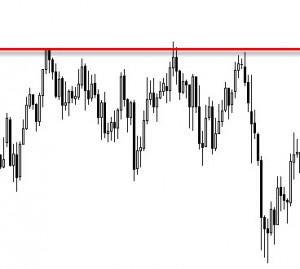[ad_1]
Foreign exchanges markets we first developed to facilitate cross border trade conducted in different currencies by government, companies and individuals. In the early days the foreign exchange markets primarily existed to facilitate the international movement of money, however even in the early days there were speculators.
These days a large portion of the Forex market is driven by speculation, arbitrage and professional dealing. In the past retail investors could only gain access to the foreign exchange market through banks that transact large amounts or currencies for commercial and investment purposes. Trading volume has increased rapidly over time, especially after exchange rates were allowed to float freely in 1971.
The 20th century saw the rise and fall of a number of economic agreements and exchange rate mechanisms, all of which were created with intention of promoting international economic stability and to provide an efficient and reliable means for valuing exchange rates. The most notable of these was the Bretton Woods agreement, stretching from 1944 to 1971.
The Bretton Woods agreement was born in 1944 at the conclusion of world war II with the intention of promoting international economic stability and freer trade, both were thought to be major causes of the war. It was created by John Maynard Keynes, the father of Keynesian economics, and Harry Dexter White. Its key points included:
- The Creation of international authorities to promote international economic stability and free trade. This was the International Monetary Fund (IMF), World Bank and the general agreement on tariffs and trade (GATT).
- The fixing of exchange rates for economies.
- The convertibility between gold and the USD, empowering the USD as the worlds base currency.
This was the most powerful agreement affecting exchange rates over the 20th century, stretching 27 years and setting in place the role of the USD as the worlds base currency. Of the above key points, only the first is still in place today, with the IMF, World Bank and GATT continuing to play a key role in the international economy.
After the Bretton Woods agreement concluded in 1971, a number of policies were introduced that led to the eventual free market policies we have today. These free market policies have promoted floating exchange rates, deregulation of financial markets and trade liberalisation. All of which have led to changes in the function, size and complexity of global markets, the Forex market in particular. This deregulation of financial markets led to the creation of new financial products to facilitate the internationalisation of savings and investment, the effect of which was an increase in capital flows across borders from international investors (banks, funds, etc..) seeking to maximise their returns.
The deregulation of global financial markets and the free flow of capital across the world saw an unprecedented level of growth in the foreign exchange market. ‘Traditional’ turnover increased from approximately $5 billion USD a day in 1977 to over $600 billion USD a day in 1987. Over the period of 1988 to 1998 daily Forex turnover increased by a further 152%. This increase could be afforded to the above mentioned deregulation of global markets, as well as the increased speculative and hedging activities being undertaken by financial institutions and multinational corporations.
Throughout the 80s and 90s access to the Forex market was limited to banks, funds, commodity trading advisors (CTAs) managing large sums of money, large corporations and big investors. Access was afforded to this group as they were able to meet the strict credit guidelines established by banks that smaller investors were unable to meet.
As the Forex market grew, it gained increasing recognition as a means for individuals to speculate in global markets and in the early 2000’s the online Forex trading market was born. Online Forex brokers establish the ‘line of credit’ with a bank, otherwise known as a prime brokerage agreement. This negates the need for individuals to have the deep pockets previously required for individuals to trade in the Forex market.
It has gained significantly in popularity since the global financial crisis as investors seek ways to diversify their portfolios and generate returns not correlated with traditional markets such as equities and real estate. Investors are drawn to the high volatility of the Forex market, benefiting from the ability to go long or short, generating leveraged returns in rising and falling markets.
[ad_2]
Source link
